Botanicals Worth Taking to Heart
Heart disease has the dubious distinction of ranking ahead of even cancer as the number-one killer of North Americans. When you consider the fact that stroke ranks fifth, cardiovascular-related disease is something we’re all too familiar with. The problem with cardiovascular disease is that it can take a lifetime to develop, usually without symptoms, yet strike a sudden, fatal blow with little warning.
The good news is that there are many ways we can take control of cardiovascular status to live longer and stronger. There are many lifestyle choices that can collectively make a difference in your quality of life. First and foremost is to lead a smoke-free life. Management of the three “Bs”—blood cholesterol, blood pressure, and blood sugar—is also critical. Eating well and leading an active lifestyle round out ways you can lead a cardiac-friendly life.
If you’re ready to adopt a heart-smart eating plan, the Mediterranean diet will most certainly be a good fit. It features a plant-based diet with increased consumption of fruits, vegetables, nuts, and healthy fats such as olive oil. Cutting down on red meat in lieu of omega-3–rich seafood is another cornerstone of Mediterranean cuisine. A population study featuring over 1.5 million healthy adults illustrates the Mediterranean diet being associated with a reduced risk of cardiovascular mortality as well as overall mortality. There is also a rich history of safe and effective use of plant-sourced nutrients and extracts to benefit cardiac health.
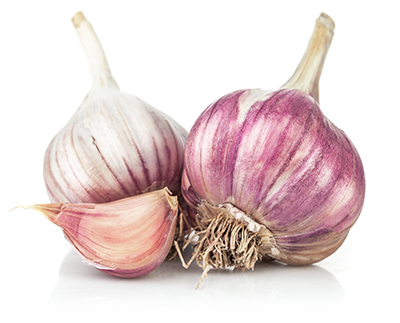 Garlic (Allium sativum), a member of the lily family, is likely the most popular culinary ingredient used worldwide. It’s also among the most-researched botanicals for cardiovascular health. The subject of over 90 clinical trials, it’s been shown to exert positive effects on both cholesterol levels and blood pressure.
Garlic (Allium sativum), a member of the lily family, is likely the most popular culinary ingredient used worldwide. It’s also among the most-researched botanicals for cardiovascular health. The subject of over 90 clinical trials, it’s been shown to exert positive effects on both cholesterol levels and blood pressure.
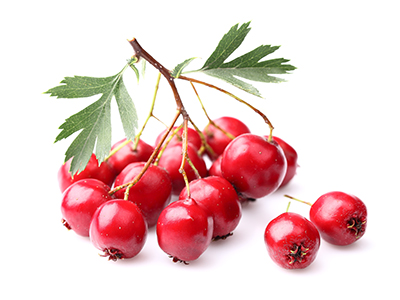 Hawthorn (Crataegus laevigata) berries and leaves are a popular natural treatment for hypertension. A randomized clinical trial led by Dr. Walker of the University of Reading in Berkshire, England, proved promising for blood-pressure management. Patients taking hawthorn demonstrated a significant reduction in diastolic blood pressure (DBP) over the 16-week study period. DBP is the lower number in blood pressure readings and represents the resting value between beats. This is an important clinical marker of cardiac health.
Hawthorn (Crataegus laevigata) berries and leaves are a popular natural treatment for hypertension. A randomized clinical trial led by Dr. Walker of the University of Reading in Berkshire, England, proved promising for blood-pressure management. Patients taking hawthorn demonstrated a significant reduction in diastolic blood pressure (DBP) over the 16-week study period. DBP is the lower number in blood pressure readings and represents the resting value between beats. This is an important clinical marker of cardiac health.
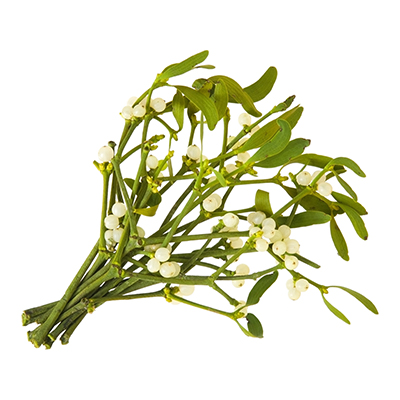 European mistletoe (Viscum album) is another popular plant for cardiovascular health. Preclinical research demonstrates it can stimulate production of nitric oxide within arterial walls, which relaxes the inner muscles of blood vessels. Animal trials have further demonstrated mistletoe to support production of high-density lipoprotein (HDL), the good cholesterol.
European mistletoe (Viscum album) is another popular plant for cardiovascular health. Preclinical research demonstrates it can stimulate production of nitric oxide within arterial walls, which relaxes the inner muscles of blood vessels. Animal trials have further demonstrated mistletoe to support production of high-density lipoprotein (HDL), the good cholesterol.
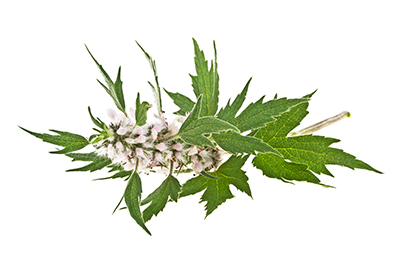 Motherwort has a long history of use for anxiety and hypertension, properties reflected with its Latin or scientific name, Leonarus cardiaca.
Motherwort has a long history of use for anxiety and hypertension, properties reflected with its Latin or scientific name, Leonarus cardiaca.
Compounds known as capsaicinoids present in Cayenne pepper (Capsicum annuum) have been shown to be beneficial for blood-serum cholesterol and reduction of arterial plaque formation, according to research published in The Journal of Agricultural and Food Chemistry. So, feel free to spice up your life.
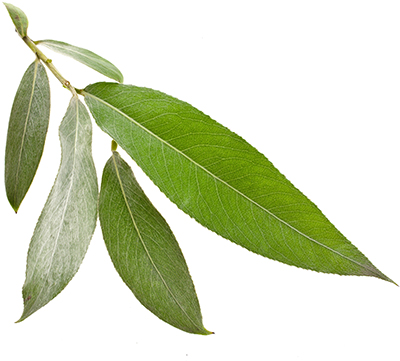 Willow (Salix alba), the herbal precursor to Aspirin®, is known for its mild inhibition of clotting. This can in turn play a critical role in cardiovascular health for those at risk of heart attack.
Willow (Salix alba), the herbal precursor to Aspirin®, is known for its mild inhibition of clotting. This can in turn play a critical role in cardiovascular health for those at risk of heart attack.
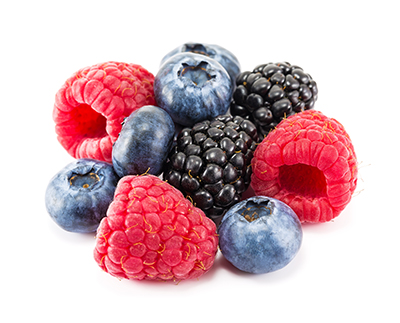 Antioxidants abundant in dark-skinned berries and fruit have long been recognized for cardiac wellbeing. Bilberries (Vaccinium myrtillus) are among the therapeutic powerhouses that have been shown to reduce accumulation of arterial plaque. Bilberries are closely related to the North American blueberry.
Antioxidants abundant in dark-skinned berries and fruit have long been recognized for cardiac wellbeing. Bilberries (Vaccinium myrtillus) are among the therapeutic powerhouses that have been shown to reduce accumulation of arterial plaque. Bilberries are closely related to the North American blueberry.
These nutrients are popular in health-food stores “à la carte” or in comprehensive formulas that—pardon the pun—are “heart to beat.”
To your health!

 Stores
Stores